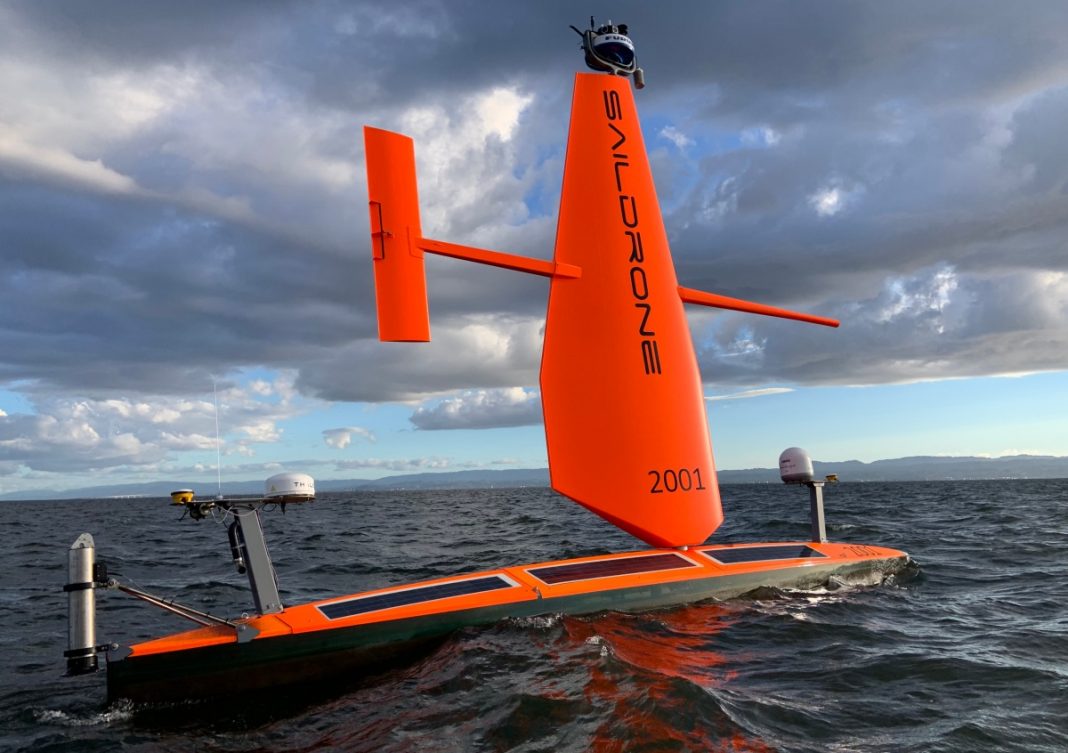Saildrone has quickly risen to the surface of the growing field of autonomous seagoing vehicles — a category you could be forgiven for not knowing about but that is increasingly important across numerous industries. Its latest vessel, the Voyager, strikes a balance between its shorter Explorer and large-scale Surveyor, and they’re already making one a week.
The Voyager is a 33-foot uncrewed surface vehicle, or USV, intended for near-shore maritime operations like coastal and lake mapping. In addition to the expected sonar equipment, each craft is equipped with traditional cameras, radar, and “sub-surface passive acoustics” to help build a picture of the sea or lake bed down to a depth of 900 feet. It also integrates other improvements, like more power and a more consistent data uplink.
You can imagine how useful it would be to send one of these things around every month to provide up-to-date metrics on your harbor or channel. In addition to the ordinary changes that come with tidal action and redistribution of silt and soil, it could identify illegal dumping sites, drifting trash like tangles of fishing equipment, and other unwelcome developments.
Naturally there are security applications as well: “illegal, unreported, and unregulated fishing” is a huge problem, especially given the fragile state of marine ecosystems right now. And more traditional law enforcement operations like combating smuggling would also benefit from a bit of all-hours surveillance.
It doesn’t just have to be a floating cop, though. The data provided by autonomous platforms like Saildrone’s is useful for research purposes. The various sensors on board can detect wave action, salinity, water temperature, and lots of other metrics that oceanographers, meteorologists and the like can’t get enough of.

Image Credits: Saildrone
And as near-shore industries like seaweed farms and fisheries multiply in the new blue economy, this data contributes to a more accurate picture of the ever-changing ocean. Saildrone vessels don’t need people on them, of course, which means they can spend lots of time at sea or at inhospitable locations like polar waters.
The Voyager has been undergoing testing since February of last year when the first prototype went into the water, and it has been revised several times since — the company said it is really always in development mode as new technologies and use cases become available.
Saildrone is now moving into full production mode. The company has built 100 of its smaller Explorer craft since it was founded years ago, but now it is ready to pump out a Voyager a week. To do so, it must outsource manufacturing of the wing, keel, and hull to partners Janicki Industries and Seemann Composites, though the final vessel will be assembled and serviced at Saildrone’s main space in Alameda, California.
